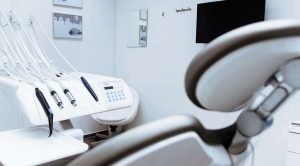The temporomandibular joint (TMJ) is an essential hinge joint that connects your jawbone to your skull. It allows you to perform various movements, like chewing and speaking. However, when problems arise with the TMJ, it can lead to discomfort and pain. This article explores the symptoms of TMJ disorders and emphasizes the importance of seeking professional help when experiencing such issues.
Understanding TMJ Disorders
What is TMJ Disorder?
TMJ disorder refers to a variety of conditions affecting the temporomandibular joint. These disorders can cause pain, stiffness, and restricted movement in the jaw. The exact cause of TMJ disorders can be challenging to pinpoint, but factors like jaw injuries, arthritis, or stress-related habits like teeth grinding may contribute to their development.
Common Symptoms of TMJ Disorders
- Jaw Pain: One of the primary symptoms of TMJ disorders is pain in the jaw joint and the surrounding areas, such as the face, neck, and shoulders.
- Difficulty in Jaw Movement: If you find it challenging to open or close your mouth fully, it could indicate a TMJ problem.
- Clicking or Popping Sounds: Clicking, popping, or grating sounds when you move your jaw may signify a TMJ disorder.
- Lockjaw: TMJ disorders can sometimes lead to a temporary inability to open or close your mouth entirely.
- Headaches: Persistent headaches, especially around the temples, are common symptoms of TMJ issues.
- Ear Pain: TMJ disorders may cause earaches or a feeling of fullness in the ears.
- Chewing Problems: Difficulty in chewing or discomfort while eating can be linked to TMJ problems.
- Tooth Sensitivity: TMJ issues can lead to heightened sensitivity in your teeth.
When to Seek Professional Help
Consulting a Healthcare Professional
If you experience any of the aforementioned symptoms, it is crucial to seek professional help promptly. Start by consulting your dentist, who can assess your condition and determine if you have a TMJ disorder. They will conduct a thorough examination, review your medical history, and may order imaging tests to pinpoint the issue.
TMJ Treatments
The treatment for TMJ disorders depends on the severity and underlying cause. Here are some common approaches:
- Pain Management: Over-the-counter pain relievers, warm compresses, and gentle jaw exercises can help manage mild TMJ pain.
- Dental Treatments: Your dentist may recommend dental procedures to correct issues like misaligned teeth that could be contributing to the problem.
- Night Guards: If teeth grinding is causing your TMJ disorder, your dentist may suggest wearing a nightguard to protect your teeth and jaw during sleep.
- Physical Therapy: In some cases, physical therapy can be beneficial in improving jaw movement and reducing pain.
- Stress Management: Stress can exacerbate TMJ symptoms. Engaging in stress-reducing activities like yoga or meditation may be helpful.
- Surgery: Severe cases of TMJ disorders may require surgery as a last resort.
Ignoring TMJ symptoms can lead to prolonged discomfort and potentially worsen the condition. If you experience jaw pain, difficulty in jaw movement, clicking sounds, or any other TMJ-related symptoms, don’t hesitate to seek professional help. A healthcare professional can provide an accurate diagnosis and recommend appropriate treatments to alleviate your discomfort.








 REQUEST AN APPOINTMENT
REQUEST AN APPOINTMENT